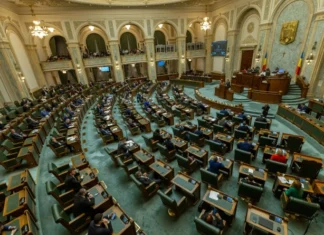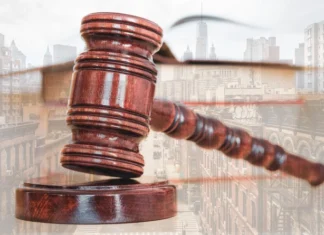The Constitutional Court is currently reviewing an additional thirteen challenges related to the candidacies of several prominent political figures, including Călin Georgescu, Nicușor Dan, Victor Ponta, George Simion, Paul Ispas, Cristian Terheș, and Lavinia Șandru. This situation highlights ongoing discussions concerning the eligibility and legitimacy of these candidates as they aim to secure their positions in the upcoming elections.
Călin Georgescu, a notable figure associated with various political movements, has faced scrutiny regarding his qualifications and the implications of his candidacy. Meanwhile, Nicușor Dan, who has garnered attention for his commitment to urban development and civic engagement, is also under examination. The challenges against these candidates raise pivotal questions about the criteria that determine political eligibility in Romania.
Victor Ponta, a former Prime Minister with a controversial legacy, finds himself in a similar predicament as opponents question the validity of his candidacy. His tenure was marked by significant political challenges, and the current legal battles serve to further complicate his political landscape. Likewise, George Simion, a figure known for his vibrant participation in nationalist movements, faces challenges that delve into his political affiliations and actions, particularly concerning themes of national identity and sovereignty.
The circumstances surrounding Paul Ispas, Cristian Terheș, and Lavinia Șandru illuminate the broader narrative of political dynamics in Romania. Ispas and Terheș have both been involved in various political enterprises that have sparked debate among constituents and that may also reflect on their suitability for office. Lavinia Șandru adds to this mix, bringing her own unique perspective and experiences to the table, which are being scrutinized under the current legal evaluations.
The controversies surrounding these candidates reveal deeper issues within the electoral process, such as how political legitimacy is perceived and managed in Romania. The Constitutional Court’s involvement underscores the importance of maintaining a transparent and fair electoral system, where challenges and disputes can be addressed legally and systematically. As the court deliberates on these cases, its decisions will undoubtedly have implications not only for the individuals involved but also for the electorate’s trust in the political system.
Moreover, these challenges reflect a growing trend where the electorate is becoming more vigilant about the qualifications of those seeking public office. The scrutiny facing these candidates indicates an increasing demand for accountability and transparency in Romanian politics. Citizens are increasingly aware of the significance of having qualified individuals in positions of power, and these legal challenges could be seen as reflective of that sentiment.
As we move closer to the elections, the outcomes of these legal proceedings may significantly impact the political landscape, shaping public opinion and influencing the strategies employed by candidates. The developments in the Constitutional Court will undoubtedly resonate across different sectors of society, making it clear that the dialogue surrounding political candidacy is far from over. The court’s eventual rulings will play a crucial role in defining who can participate in the next electoral cycle, thus setting the stage for Romania’s political future.






